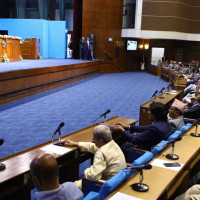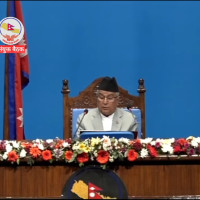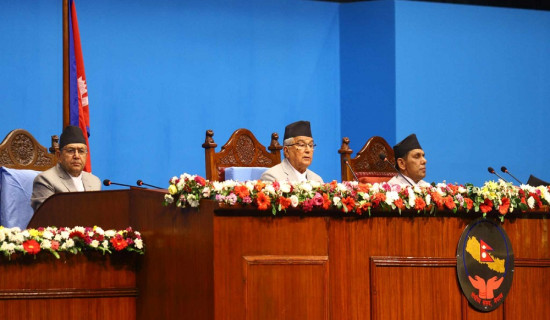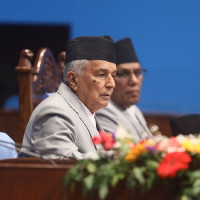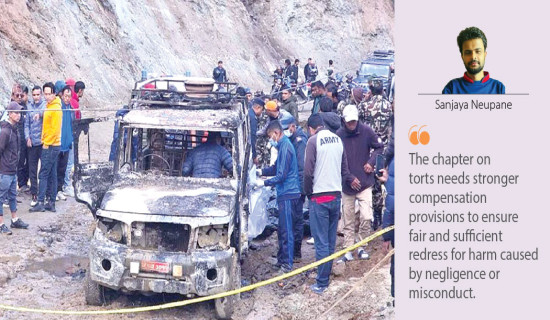- Friday, 2 May 2025
Milestone Agreement
Ending a 28-day-long Kathmandu-centric teacher's agitation, the government and the Nepal Teachers' Federation (NTF) reached a nine-point agreement Wednesday. This has enabled the resumption of regular classes in the community schools from Friday. The government and political parties came together to meet the long-standing demand of teachers that the parliament should approve the School Education Bill without delay. The deal has stipulated that the pending Bill will be endorsed by June 29, 2025. The Bill will be converted into an Act once the House passes it, which will restructure the school education as per the federal set-up.
The government has agreed that teachers under relief, temporary, former higher secondary, learning grant, technical stream, special education, and early childhood development facilitators will have their sick leave accumulated, and the corresponding amount will be paid in a lump sum at the time of retirement. This will provide financial security to the teachers as they end their career at schools. Similarly, all teachers, both permanent and temporary (including those under relief, temporary, contract, former secondary, technical stream, and special education) will get rural region allowances as per the prevailing laws.
All teachers and school staff will receive medical facilities at the Civil Servant Hospital. The teachers will be included in the official order of precedence of the government. The government has to bear an additional Rs. 8 billion annually. However, the agreement will be a milestone in pushing reforms in school education while resolving the grievances of teachers. What is more important is that the continuous agitation of teachers not only hit the school education but also fuelled a psychology of chaos that has encouraged those active in fishing muddy waters.
Baisakh is the month for the start of the new academic session. The protest had hindered the enrollment of new students in grade one and other classes. The school enrollment campaign too got affected. The consensus between the teachers and the government has given a respite to all students, parents and even the agitating teachers. In a bid to intensify the pressure on the government, agitating teachers had refused to check the answer sheets of the SEE examination, leaving the result publication uncertain. Likewise, the examination of class 12 also got postponed, which further fueled uncertainty among thousands of students.
As per the accord, the teachers have a greater obligation to play an instrumental role in improving results in the community schools. As the pass percentage in community schools has been consistently low over the years, despite the community schools having qualified teachers who came to service having passed the competitive exams conducted by the Teachers Service Commission. Many community schools have physical infrastructures better than those of private schools.
The government and parties represented in the federal parliament require working in tandem to bring the School Education Act. Some years back, the teachers and the government signed a deal to enact the Bill as soon as possible but the parliament failed to do so owing to various reasons. Failure to formulate the vital laws raises the question regarding the credibility and competence of both the parties and the parliament. The tendency to ink agreements with agitating groups after their protests but non-compliance with the accord will only give rise to resentment and frustration. It is expected that the present accord will be implemented in letter and spirit, and teachers will not have to come to the streets.




